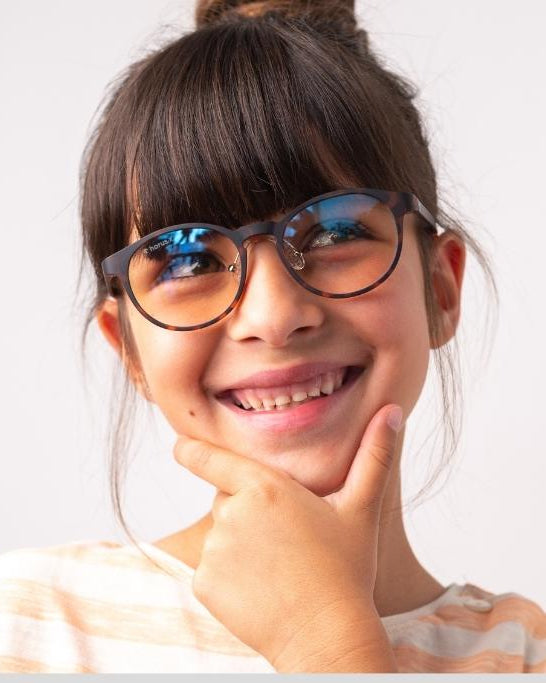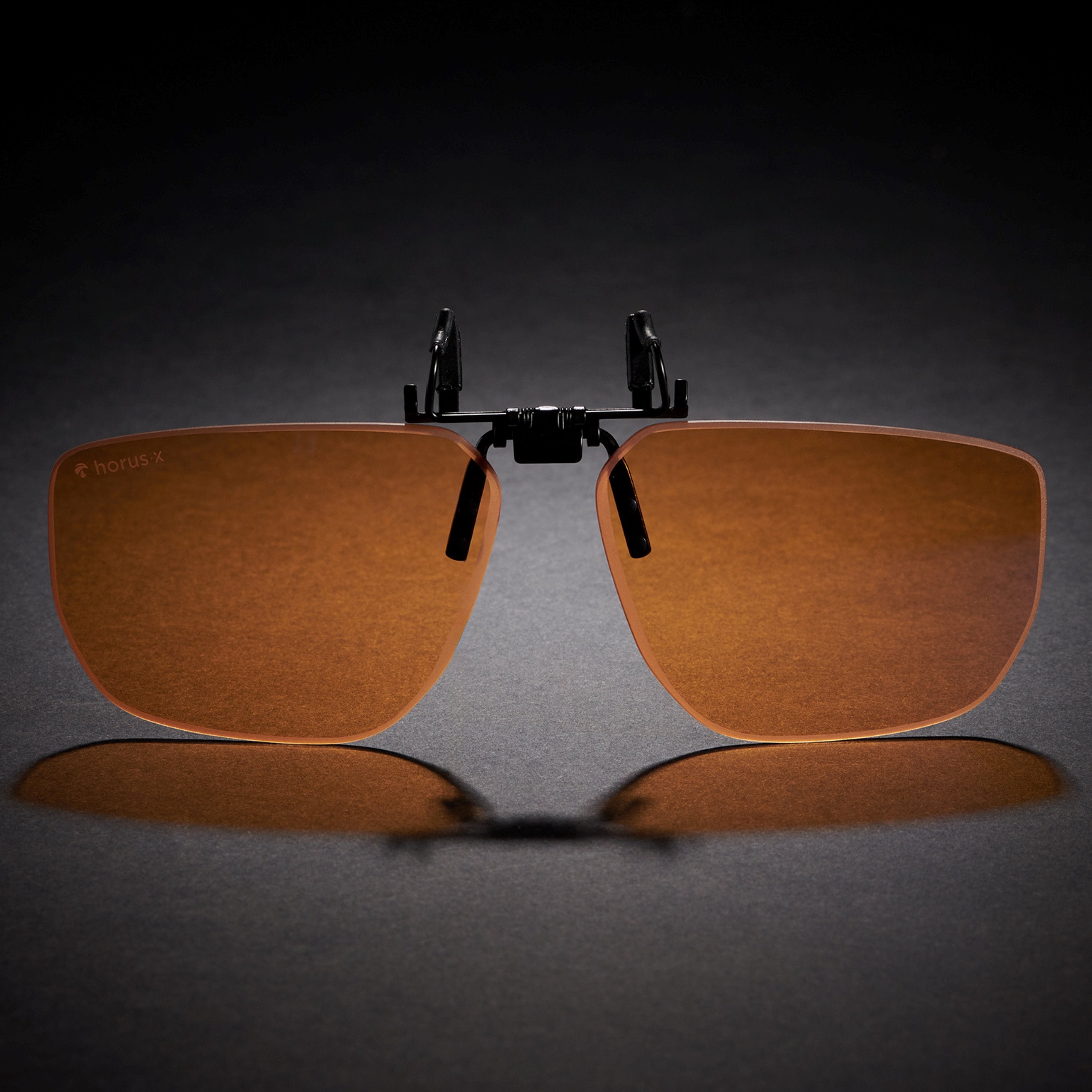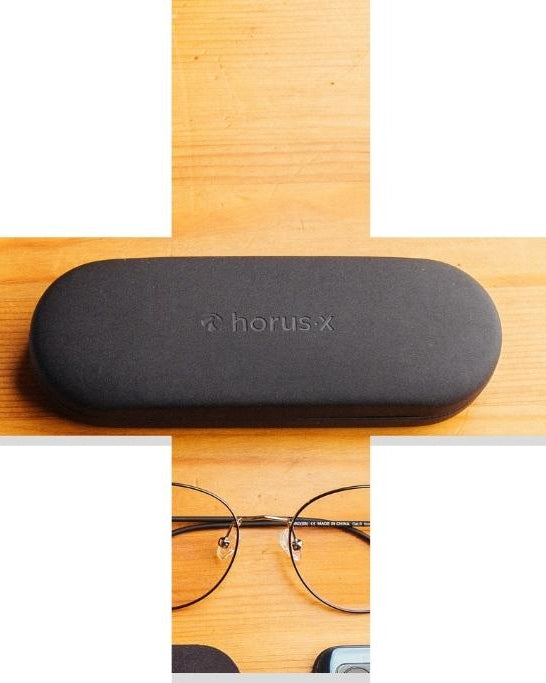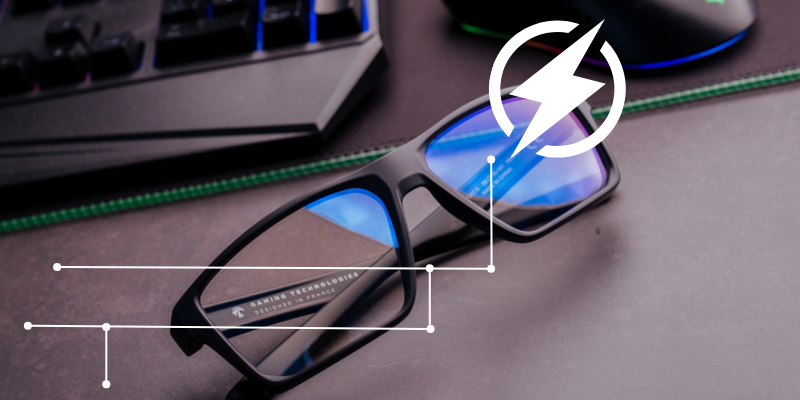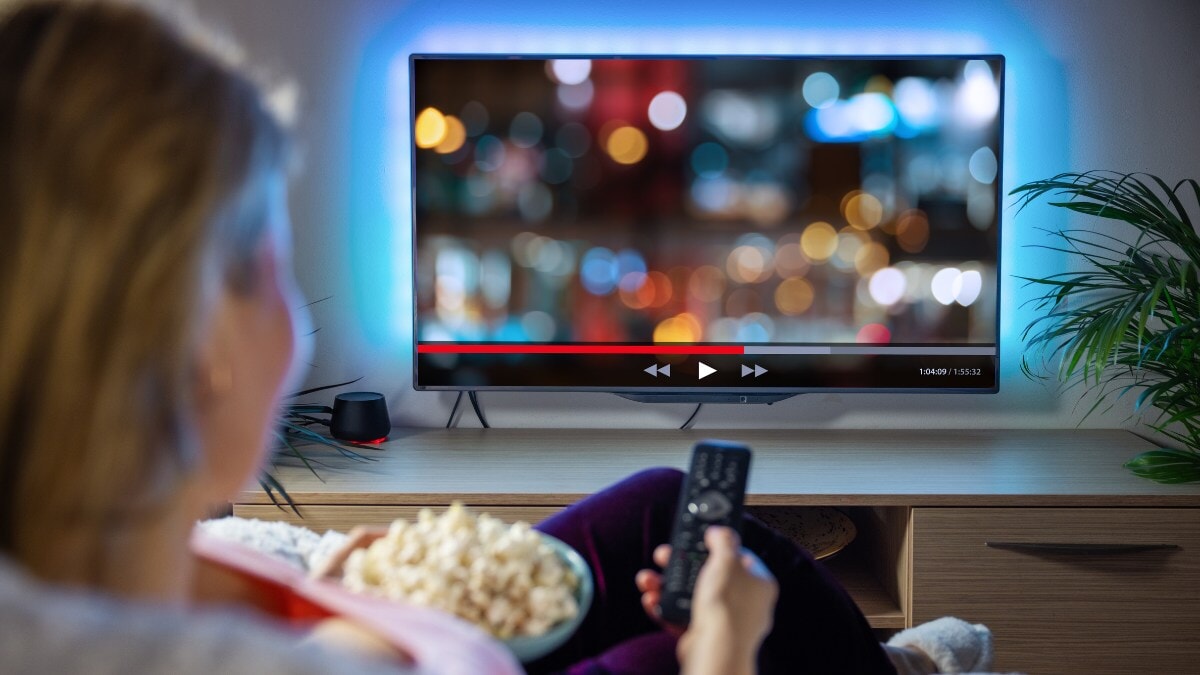As you quietly sit, sipping your coffee and watching the latest episode of House of the Dragon, you realize Rhaenyra isn’t the only one who needs to be on her guard. You have your own enemy, plotting in the wings to take you (or at least your eyes) down.
The dreaded blue light!
In addition to fearing its presence when on your computer, tablet or cellphone, it’s also a factor in watching the television.
In this article, we’ll be discussing the how’s and why’s of blue light, and the best ways to protect yourself.
Does the TV emit blue light?
Unsurprisingly, given the title of this article, yes! What’s more, the blue light TV emits is significant and can cause long-term health issues.
You may be wondering why manufacturers don’t just block that blue light during the production process. Unfortunately, as well as being harmful, it’s also necessary. Without blue light, the colors on the television would be distorted and the picture would look wrong.
Art lesson time!
Blue is a primary color, meaning most other colors contain it in some variation. Without blue light, the rendering of other colors wouldn’t be possible.
Imagine trying to watch The Incredible Hulk. He’d be more like The Incredible Sick….

Color rendering on screen: how does it work?
A digital screen is made up of millions of tiny dots called pixels.
Each pixel is composed of 3 colors:
🔵 blue
🟢 green
🔴 red
These pixels are so small you can’t see the individual dots on your screen, but together they form the images you can see.
The screen combines the colors and produces an image that your brain will interpret with different color variations.
Without blue light, colors can’t form properly and most of them will be absent. Purple, cyan, and even white will change if the blue light on TV screens was totally removed.
Why can’t manufacturers just use another color?
Well for one, colors don’t work that way.
And for two, if you tried it, the spectrum of color would be hugely reduced and the screen would look weird, like you were watching it with a permanent Instagram filter.
The combination of blue, red and green produces the widest range of possible colors, which is why those three colors have to be used.
Why is blue light from my television dangerous when not all blue light is?
The problem lies in the fact that electronic devices have concentrated blue light from shorter, harmful wavelengths. If we stare at it for too long, it can be potentially dangerous and have long-term health effects.

Our eyes are not made to stare at LED screens all day. They weren’t really around when we evolved…
Thanks to blue light being the most aggressive light on the spectrum, overexposure will attack and damage your eyes,
Whether it’s a TV, or any other electronic device, blue light presents certain health risks for you and your family.
So no, you’re not going to find yourself with a sudden third eye (the mystical or physical kind), but you might already have felt several effects of blue light without realizing.
And that’s not even including long-term health effects that you won’t discover until you get older.
In the short term, blue light and screens in general can cause a plethora of issues, all of which can be grouped under the term Computer Vision Syndrome, or digital eye strain.
These include:
- 👀Eyestrain
- 🤯Headaches
- 🤕Neck strain
- 😵💫Dizziness
In addition, another immediate impact of blue light from TV and other screens, is inhibition of melatonin production. In other words, the hormone that helps you sleep at night instead of remaining awake, running over the more terrifying aspects of Smile in your head for hours.
Finally, in the long term, more and more studies are highlighting the contribution of blue light to retinal aging and retinal diseases like AMD (macular degeneration).
How to protect yourself from dangerous blue light
We’ve put together a handy guide of 3 essential steps to protect yourself from the effects of harmful blue light.
Follow these instructions and you’ll be better protected than 90% of the population. Most people just happily and obliviously binge Vikings for hours with nary a thought to the consequences.
Rule 1: Avoid TV at the wrong times of day
This is THE golden rule. It’s more important than the location of all the infinity stones and applies to all screens, always.
Generally, as much as possible, avoid screens and bright lights up to 3 hours before bedtime.
We agree, that that’s hard, but it’s effective and we would be remiss not to mention it.
Of course, 3 hours is a long time before sleep for most of us, and once the kids are in bed the most obvious thing to do is turn on the TV. So, there are little accommodations you can also make instead.
⌛Let’s say you’re busy watching Arcane. Try adding at least half an hour to an hour between your final episode and going to bed. Read a book, talk to your partner… or your dog. The results will be better melatonin production and an easier night’s rest.
If you’re someone who constantly feels tired, or struggles with insomnia, this little daily optimization will go further than you might think.
Rule 2: Remove blue light from screens by adjusting your TV’s settings
Modern televisions, particularly smart ones, offer anti-blue light modes, much like cellphones. Samsung TV, for example, will slightly modify the color rendering to help avoid the blue light that attacks your eyes.

It’s different for each TV but worth at least checking if it’s available.
If it’s not a function of your television, you can instead help your eyes by adjusting the TV brightness to match the ambient lighting. With the precision of Leonardo Di Caprio choosing a woman under 25, decrease the brightness of your TV until the blacks on screen are deep and sharp. This will depend on the lighting of the room you’re in.
You can also adjust the hue or saturation of the screen manually. Try and tend the color a little bit towards orange, which emits less blue light. This is more technical though and if you’re not confident you know how to reset the TV, then its best not to go too crazy with color changes here.
Rule 3: Protect yourself with blue light blocking glasses
The final touch and ultimate protection: shield yourself from blue light with blue light glasses.
Like Clark Kent slips on a pair and disguises himself from friends and family, you can disguise yourself from blue light and let it bounce right off you.
Blue light glasses are the perfect and most effective way to protect yourself. The best blue light blocking glasses are designed to block as much harmful blue light as possible. They will improve the contrast of your screens, and reduce the bad reflections that also tire your eyes out.
Which blue light glasses should I choose?
The best blue light glasses tick off all of the following boxes. See if the pair you’re interested in meet the criteria:
- ☀️100% UV filtration
- ⚡100% blue light filtration between 380 and 400 nanometers
- ☇Filtration between 50 to 90% of blue light between 380 and 450 nanometers
- 🌟Anti-reflection
- 👓Ergonomic design for better comfort
Usually blue light glasses have amber or slightly tinted lenses. Once you’ve ticked off the other boxes, you need to decide which of these is right for you.
We recommend:
- ⛅During the day: Wear blue light glasses with clear lenses everywhere, for upmost protection.
- 🌃In the evening: Use a darker amber lens for intense filtration and better protection before going to sleep.
Our choices:
Amber lenses for ultimate protection, by Horus X

This collection of glasses incorporates the most powerful technologies from the world of those who spend the most time staring at screens: gamers. A relaxing amber hue is quick to get used to, and really soothes the eyes when horseback riding across the Old West in Red Dead Redemption.
Clear lenses for daily protection and use, by Horus X

Our stylish collection is equipped with Ghost technology so you can leave the house looking as fashionable as always. They’re perfect for discreet use, all day long.
Some other brands have also designed filters to stick on the TV. We personally don’t think this is as effective as popping on a pair of glasses. Also, glasses can be removed, with the blue light filter on TV, there’s no going back…
Plus, in some situations, like staring at Numenor in Rings of Power, you want to see it in its full glory and perfect color rendering, even if it means a little blue light exposure. With a good pair of glasses, you can pick and choose your moments, and there’s not permanent effects to your television.
Protect the children!
Children’s eyes are even more sensitive than adults. For babies and toddlers, we strongly advise keeping them away from screens until they’re at least 3 years old.
After that age, good luck keeping them away from “baby shark, do do do do do….” (sorry).
But even when they’re a bit older, regulating children’s screen time is essential for positive cognitive development and preventing long term impact on their eyes. They take time to reach their full size and maturity and you don’t’ want to affect that. Overexposure to screens and bleu light won’t optimize their visual health.
Remember:
- Cut back on the screen time wherever possible
- Get them a cute pair of children’s blue light blocking glasses from Horus X, so they can play or watch Pokémon in peace!
Final thoughts: blue light in televisions
The dangers of blue light are more than real. Protecting yourself and your little one is essential, and remember, it really is everywhere.
If, like the vast majority of the population, you spend a lot (or too much) time in front of screens, then there are solutions. There’s a wide range of blue light blocking glasses over there, in a reasonable range of prices from 30 to 70 dollars.
Reduce your visual fatigue, prevent sleep disorders and limit the risk of age-related macular degeneration by buying a pair. It’s that simple!
Questions? Let us know in the comments below, or @ us on social!




